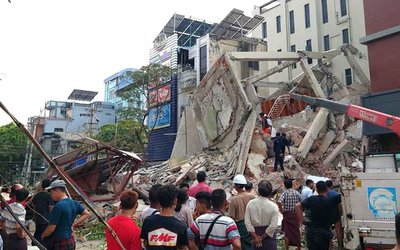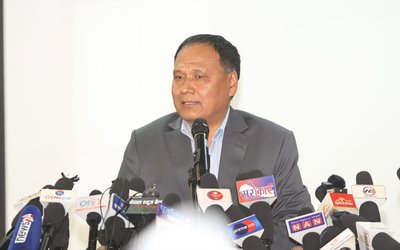
Gujrat chief minister Narendra Modi’s mega rally in Delhi was the talk of the town earlier this week. All roads led to the Japanese Park where Modi was to deliver his speech -- the first in the national capital after being anointed the Prime Ministerial candidate from Bharatiya Janata Party (BJP) in the Lok Sabha elections scheduled next year. As he launched scathing attack on the Congress, the Gandhi family and even the Pakistani Prime Minister, lakhs of attentive supporters gathered at the venue cheered the Gujarat chief minister. Modi cheers were heard all around throughout the program. Although criticisms continue to flow regarding his anointment, the rally in the capital hinted one thing for sure: the people may be ready to forget the past and look to the future.
His election campaign is believed to have been closed watched by international community as well. Hailed as a superstar in the home state for the governance and development, the chief minister is hugely credited for bringing in foreign investment to the State. Many countries have commended Modi’s tenure in the state although some including US have not forgotten his “tainted” past. It is in this backdrop that many wonder as a Prime Ministerial candidate, what will be his foreign policy.
For all criticism he has reserved for the UPA’s “failures” at home and external relations front, Modi is very likely to actively pursue at least one policy of the incumbent Congress-led government. It is ‘Look East’ policy. It is not difficult to say why. The East Asian countries in general and Japan, in particular, have played a vital role in Gujarat’s impressive growth in recent years. Japan has been one of the biggest investors in Gujarat since 2009. It was a partner in the ‘Vibrant Gujarat’ Summit held in 2009 and again in 2013 which was the first State Summit to have international partnership. More than 30 Japanese Companies were operating in the state in 2010 and the Japanese Government has aimed to set up 100 more Japanese Companies by 2016. Gujarat is also one of the six states where Delhi Mumbai Industrial Corridor (DMIC), partly financed by Japan Bank of International Co-operation (JIBC), will pass through. Not only Japan, but Thailand and South Korea too have initiated some projects and have shown interests to further their involvement in the state.
Economic Research Institute for ASEAN & East Asia (ERIA), a leading international research organization operating with a special focus on ASEAN has planned to forge partnership between Gujarat and ERIA for human resource development and skill development among the technical professionals. So, it is not difficult to predict that, if elected to the top executive office of the world's second most populous nation, Modi will place special focus on the East Asia region.
Modi’s not-so-good relationship with the Western countries should also come into consideration when he seeks to promote closer cooperation with the East. The US and UK have openly snubbed the Gujarat chief minister for his alleged involvement in the 2002 Gujarat communal riots. In 2005, the US refused a visa to Modi. The UK followed the suit.
Some US companies have their manufacturing units in Gujarat but they number just a few. Things have not changed much even after the main opposition BJP formally declared him the party’s prime ministerial candidate in the upcoming parliamentary elections . Although the UK has reconsidered its decision to deny visa, the US stated soon after his anointment that it would not follow until and unless some ‘questions were answered’. So, even if elected Modi is hardly expected to look forward to a quick change of his image in the West. This would make the close and enhanced collaboration with the East not only an automatic choice but compulsion as well to expedite the economic growth.
Given the economic woes the West has been facing in recent times, it would also be worthwhile for Modi as PM to explore opportunities in the emerging East rather than look to the struggling West.
- Ukrainian Crisis And The World (Dis)Order
- Apr 22, 2022
- China’s Cautious Steps In The Graveyard Of Empires
- Aug 18, 2021
- Foreign Aid On The Fence!
- Aug 08, 2021
- Communist Party of China centenary celebrations Reading between the lips
- Jul 14, 2021
- Second Wave Of Covid-19 In India: Deadly Blow To The Economy
- Jun 23, 2021
















